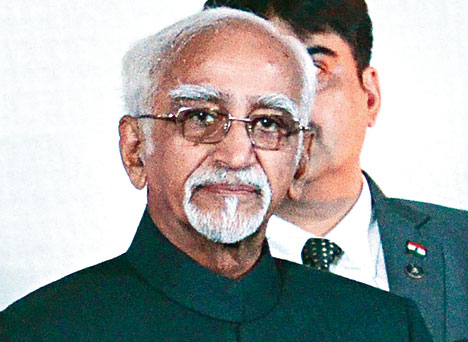New Delhi, June 27: Many school boards may have bumped up their students' Class XII scores this year ignoring their own declared commitment to end the artificial boosting of marks, a rise in their top 20 percentile margins suggests.
Educationists believe the boards may have been motivated to match the marks inflation by the country's largest school board, the Central Board of Secondary Education, which had been directed by Delhi High Court to continue with the practice of jacking up scores.
Any board that inflates marks gives its students a competitive advantage during admission to the premier colleges that draw applicants from across the country.
Fifteen school boards have so far provided data on their top 20 percentile cut-offs to the National Institutes of Technology, showing a rise in the case of eight of the boards and a fall in six.
The tech schools had sought the data since only students from the top 20 percentile of their respective boards (from each reservation category)would be eligible for admission to their BTech courses this year.
A student's percentile score is the number of students who ranked below her multiplied by 100 and divided by the number that took the exam. The top 20 percentile cut-off is the marks obtained by someone whose percentile score is 80.
On April 24, all the school boards had met and most had agreed to end the practice of awarding extra marks to every student so that those at the bottom can secure pass marks.
"All the state boards decided to stop... upward revision/spiking of marks from the current year except Kerala board," the minutes of the meeting, called by the Union human resource development ministry, said.

But, on a student's petition, the high court told the Central Board of Secondary Education that it could not change its practice so close to the exam. Now, many of the other boards too seem to have quietly jacked up their marks.
Former Central Board chairman Ashok Ganguly said that if all the boards had kept their word, the average marks of their students would have fallen, and so would the 20 percentile cut-off.
The sharpest rise in the cut-off - from 324 to 354 out of the full marks of 500 - has been witnessed in Kerala. Among the boards whose cut-off margins have fallen are those of Punjab and Assam and the Council of Indian School Certificate Examinations.
Ganguly said that many boards inflate marks arbitrarily to ensure parity with the previous year's pass percentage. He said they should award extra marks "only when there is a reason, such as a huge difference between the mean marks scored in the alternative question papers set for the same subject".
A Central Board official said the board would meet on Thursday to decide how to do away with the practice of inflation from 2018.
"The state boards tend to spike the marks to try and make their students more competitive at the national level," said Jyoti Bose, principal of Springdale School Dhaula Kuan.
Bose said that all the boards must agree to stop doing this and adopt a uniform marking policy so that "all students with similar performance, irrespective of their boards, are received with equal status by the colleges".










